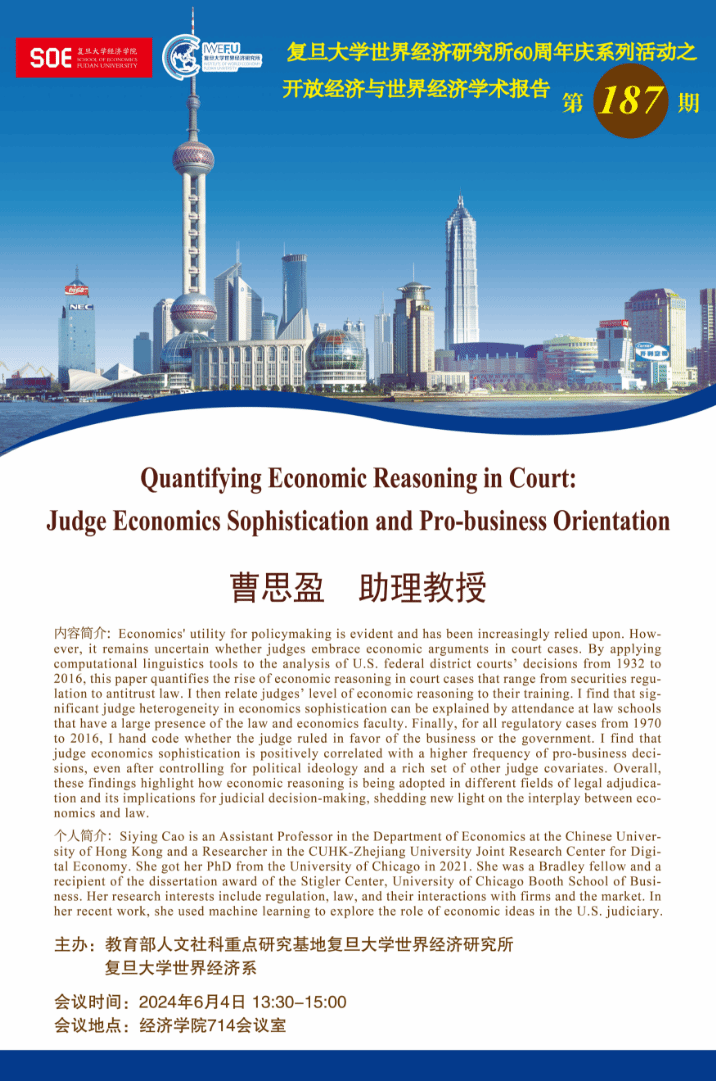主题:Quantifying Economic Reasoning in Court: Judge Economics Sophistication and Pro-business Orientation
主讲:曹思盈 助理教授
会议时间:2024年6月4日 13:30-15:00
会议地点:5657威尼斯714会议室
内容简介: Economics' utility for policymaking is evident and has been increasingly relied upon. However, it remains uncertain whether judges embrace economic arguments in court cases. By applying computational linguistics tools to the analysis of U.S. federal district courts’ decisions from 1932 to 2016, this paper quantifies the rise of economic reasoning in court cases that range from securities regulation to antitrust law. I then relate judges’ level of economic reasoning to their training. I find that significant judge heterogeneity in economics sophistication can be explained by attendance at law schools that have a large presence of the law and economics faculty. Finally, for all regulatory cases from 1970 to 2016, I hand code whether the judge ruled in favor of the business or the government. I find that judge economics sophistication is positively correlated with a higher frequency of pro-business decisions, even after controlling for political ideology and a rich set of other judge covariates. Overall, these findings highlight how economic reasoning is being adopted in different fields of legal adjudication and its implications for judicial decision-making, shedding new light on the interplay between economics and law.
个人简介:Siying Cao is an Assistant Professor in the Department of Economics at the Chinese University of Hong Kong and a Researcher in the CUHK-Zhejiang University Joint Research Center for Digital Economy. She got her PhD from the University of Chicago in 2021. She was a Bradley fellow and a recipient of the dissertation award of the Stigler Center, University of Chicago Booth School of Business. Her research interests include regulation, law, and their interactions with firms and the market. In her recent work, she used machine learning to explore the role of economic ideas in the U.S. judiciary.

 返回顶部
返回顶部